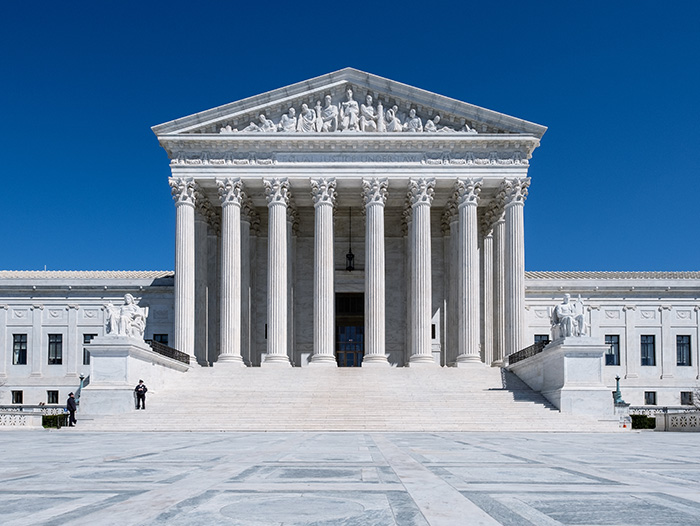Auto logout in seconds.
Continue LogoutRadio Advisory's Rachel Woods spoke with Liz Fowler, former director of the Center for Medicare and Medicaid Innovation under the Biden Administration, and Eric Hargan, former Deputy Secretary of HHS during the first Trump term, to discuss how to navigate the shifting policies and priorities of the Trump administration's second term.
Below are some key points from the interview. Download the episode for the full conversation.
A fast start to a new administration
Hargan and Fowler noted the pace and breadth of change within the first 100 days of the new Trump administration has been unprecedented. Hargan specifically mentioned the sheer volume of executive orders — 147 so far — as well as the sweeping restructuring of HHS, which he noted was "the first time in about 30 years" that such a transformation has occurred.
Hargan also noted the introduction of the Department of Government Efficiency (DOGE), a novel administrative mechanism, and the resulting personnel upheaval, with thousands of federal employees let go.
Fowler also acknowledged that while transitions typically involve policy reviews and model evaluations, the scale of staff reductions under DOGE has been "devastating for morale." Fowler praised the Trump administration's speed in filling roles but warned that the loss of institutional knowledge could have long-term consequences.
How to engage in an era of uncertainty
Both Hargan and Fowler emphasized the importance of healthcare leaders proactively and respectfully engaging the U.S. government.
"Don't just bring your problems and complaints, but also think about what solutions to bring to the table" Fowler said, adding, "Use numbers and evidence, build your credibility, be respectful. Don't come in guns a-blazing full of judgment and ill will. Maybe don't wait until you need something before you engage."
Hargan added that timing is critical. "Don't just show up when you have a problem, especially one that's like you're on fire with," he said. "That's not the time to engage." Hargan also encouraged healthcare leaders to understand the administration's goals and frame their input accordingly.
Woods noted a growing concern among healthcare leaders — a fear of retaliation. Some organizations are choosing not to engage at all, worried that raising issues could jeopardize funding or programs.
Fowler dismissed this viewpoint as shortsighted. "You want to be at the table, not on the menu," she said, and urged leaders to consider alternative channels, such as Congress, to voice concerns.
The impact of MAHA and Congress' proposed budget
Woods mentioned the Make America Healthy Again (MAHA) initiative.
Hargan described MAHA as a work in progress, with early signals pointing to a focus on chronic disease and children's health. However, he acknowledged the tension between MAHA's goals and concurrent cuts to research and public health infrastructure.
Fowler said she believes there's "an inherent contradiction between Make America Healthy Again and then cutting Medicaid to such a substantial degree that potentially 13 million people are losing their health coverage," referring to the proposed budget in Congress that includes a $715 billion cut to Medicaid and the Affordable Care Act.
Advisory Board's HEALTH POLICY resources
- What's happened in Washington (so far) and what policy changes we're bracing for
- Congress is weighing spending cuts. How will they impact healthcare?
- How federalism will shape health policy in 2025
- Stay up to date on how the Trump administration is approaching healthcare
- Radio Advisory: Big deal, little deal, or no deal? A 2024 health policy retrospective
- Unpacking the most important federal healthcare updates
- Will Trump's healthcare appointments bring 'radical changes'?
Fowler also pointed to layoffs at NIH and CDC as well as the dismantling of the Office of the Assistant Secretary for Planning and Evaluation — the office responsible for setting the federal poverty level — as examples of changes that could undermine long-term health outcomes.
Regarding Congress' proposed budget, Woods cited estimates that 8.6 million people could lose health insurance coverage, a shift that would dramatically alter payer mix and increase uncompensated care. Hargan warned that such cuts could push already-struggling hospitals "from thin to catastrophic" margins.
Fowler stressed that these proposed cuts are not just administrative decisions — they affect real people. "Programs that we might not realize we're missing until we need them," she said, referring to heating and cooling assistance and free school lunch programs.
Fowler called for an "all-out effort" to engage both the administration and Congress, including amplifying the voices of patients and communities.
Both Fowler and Hargan offered advice to healthcare leaders navigating this turbulent period in American healthcare. Fowler urged scenario planning, coalition building, a renewed focus on internal talent, and more.
"I think it's time to start thinking about diversifying relationships," she said. "Who in the community or across the health system have you not thought about working before but might have an in with this administration, with folks that are making decisions? Think about those partnerships and those relationships that maybe you hadn't thought about before. Be really strategic about your engagement, including coalition building, including that patient voice, the consumer voice, the community voice."
Meanwhile, Hargan emphasized discernment. "Don't panic … take a look at what's being proposed, what's actually being proposed, not what you're reading in these endless streams of information that come off the internet" he said. "There's an awful lot of opinions going around. They far, far outweigh the number of facts. But when those facts are there, engagement with them … engage with them thoughtfully. Think of whoever else might be on your side on these things. And how the goals of your organization can be in tandem in some ways and you can engage thoughtfully with the administration or Congress on what they're proposing."
Don't miss out on the latest Advisory Board insights
Create your free account to access 1 resource, including the latest research and webinars.
Want access without creating an account?
You have 1 free members-only resource remaining this month.
1 free members-only resources remaining
1 free members-only resources remaining
You've reached your limit of free insights
Become a member to access all of Advisory Board's resources, events, and experts
Never miss out on the latest innovative health care content tailored to you.
Benefits include:
You've reached your limit of free insights
Become a member to access all of Advisory Board's resources, events, and experts
Never miss out on the latest innovative health care content tailored to you.
Benefits include:
This content is available through your Curated Research partnership with Advisory Board. Click on ‘view this resource’ to read the full piece
Email ask@advisory.com to learn more
Click on ‘Become a Member’ to learn about the benefits of a Full-Access partnership with Advisory Board
Never miss out on the latest innovative health care content tailored to you.
Benefits Include:
This is for members only. Learn more.
Click on ‘Become a Member’ to learn about the benefits of a Full-Access partnership with Advisory Board
Never miss out on the latest innovative health care content tailored to you.



